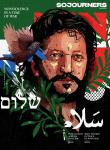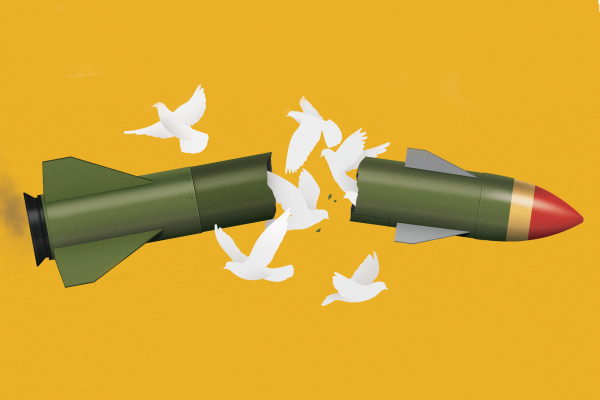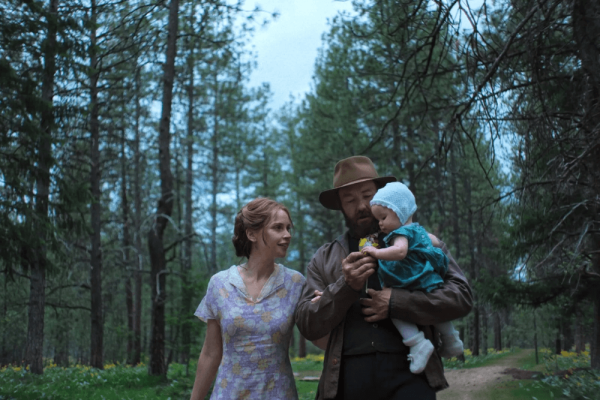SOME RESPONSES TO the Israel-Hamas war seem almost clinical in their rationalization of the most abhorrent behavior, as if it’s acceptable to engage in evil acts in response to evil acts. But, as Pope Francis warned, we cannot harden our hearts and ignore the human suffering caused by the violence: “We must not become accustomed to war, to any war,” the pope wrote. “We must not allow our hearts and minds to be anaesthetized at the repetition of these extremely serious horrors against God and humankind.”
The horrors, as is the case in all war, include the victimization of children. In the first three weeks of the war, according to Save the Children, more Palestinian children were killed by Israeli bombing in Gaza than the annual number of children killed in all the world’s conflict zones since 2019, including the war in Ukraine. “The more than 3,300 deaths of Palestinian children,” Omar Suleiman wrote on Religion News Service in late October, “have come as entire neighborhoods have been reduced to rubble, crushing innocent residents and neighbors.” The grief of the survivors echoes the lament in Matthew 2 at the slaughter of other holy innocents in the same land: “A voice was heard in Ramah, wailing and loud lamentation, Rachel weeping for her children; she refused to be consoled, because they are no more.”
The roots of this explosion of hate-based violence, of course, are deep and complex, and grief — and fear and anger — is endemic on both sides of the Israel-Gaza border. But for some people, that border stands as a line between “my people” and the “other,” and they seek to express and redress their trauma through violent acts of collective punishment. The supposed targets may be actual perpetrators of unspeakable deeds, but the primary recipients of the punishment, not surprisingly, are usually the most vulnerable, and most innocent, as is the case in Gaza.
That same destructive, otherizing mentality — ascribing collective blame to people who are lumped together despite having, perhaps, little in common — provides the malignant, dehumanizing heart of racism, Islamophobia, and antisemitism. The Israeli military blitzkrieg in Gaza unleashed a tsunami of antisemitic threats and attacks, around the world and across the United States, scapegoating Jews for actions of the Israeli government — although even that fallacious justification sounds too rational because antisemitism, like other hatreds, seems to continuously lurk just beneath the surface, waiting for an excuse to emerge.
Where, then, do we find hope amid such atrocities? The Nativity story — which starts with oppressive acts by an occupying power and ends in the slaughter of the innocents — reminds us that the Incarnation at the center of our faith unfolded among the injustice and violence of our broken and warring world. It has always taken courage to follow the Prince of Peace, the one who came to break down the barriers of enmity and hatred and to proclaim good news “to all nations.” It has never been easy, and it is not now, to stand against the powerful momentum of war. May we be empowered by the promise embodied in the babe born in this holy, besieged land to truly live and proclaim the gospel of peace.

Got something to say about what you're reading? We value your feedback!







